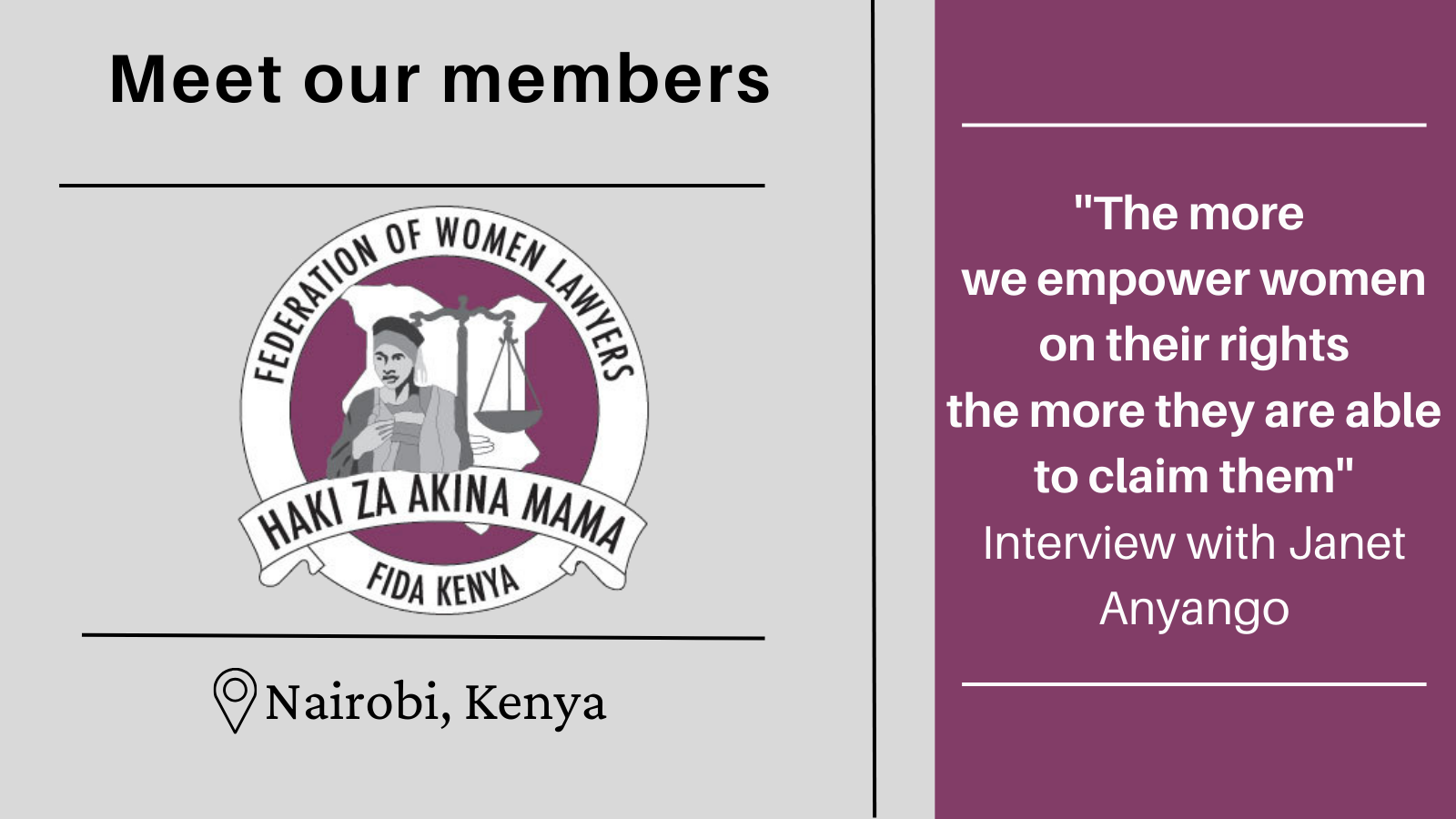Vivian: Thank you, Janet, for taking the time to have a conversation with us. I would like to know how and why was FIDA-Kenya founded? What were the motivations behind it?
J: FIDA-Kenya was founded in 1985 in Kenya by a group of women lawyers. We normally say that we are an affiliate of FIDA International. Then, it was decided to organise country level ‘’FIDAS’’ to address specific issues regarding the rights of women and children. As FIDA Kenya, we were very categorical about dismantling patriarchy and creating a society that respects and supports women’s rights. We really wanted to empower women to be able to claim their rights, both individually and collectively. We have consistently ensured that that’s what we do. We always say that we are unapologetically women, so we champion the rights of women and girls and stand up for them in all spheres of their lives.
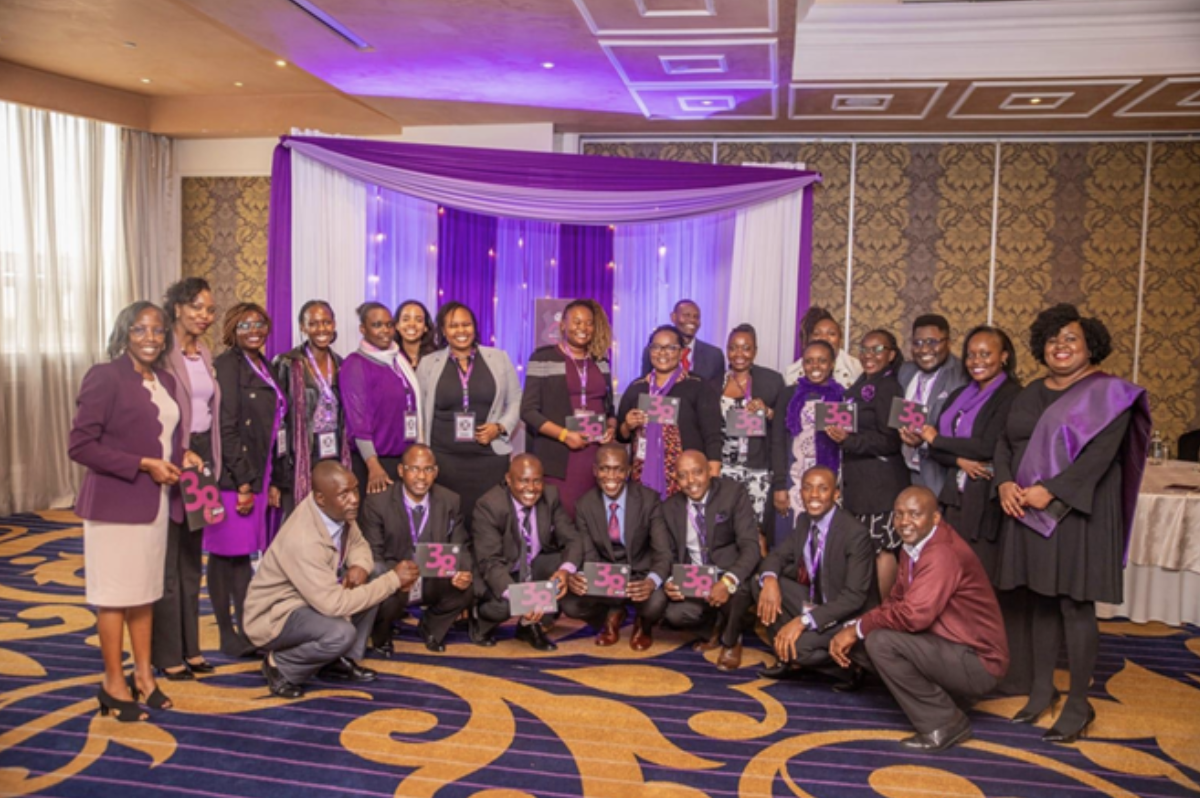 Vivian: Could you tell us more about the work you do to promote the rights of women and children?
Vivian: Could you tell us more about the work you do to promote the rights of women and children?
J: We offer legal aid and provide legal education. It means that whenever a client comes to our office, we make them aware of their rights. We have a discussion with them about their rights, which helps us appreciate their cases. We also have what we call legal awareness sessions that we organise in different communities and with multiple stakeholders. So, we empower both the rights holders and the duty bearers.
We have also pitched legal aid camps around the country, depending on their needs. For example, if there is an issue evolving in the communities, we offer legal aid on that matter. We have some groups at the community level that help us by identifying the needs in their communities. When clients come to the office seeking legal aid, we realise that, normally, most of them are very traumatised from the evaluation that they’ve gone through. That’s when we also provide psychosocial support in a unit within FIDA. We have internal counselors who take them through individual counseling. We also have couple therapy. As FIDA Kenya, we like to ensure that after this psychosocial support, they can also participate in sessions for economic empowerment. This is due to the fact that most of the women who are victims of violence are economically dependent on their perpetrators. That is why they stick to this cycle of violence. But at least they come and seek help, and then we are able to link them up with these sessions for economic empowerment.
During the psychosocial support sessions, we categorise the cases. For now, we would say that we promote access to justice for women through both formal and informal structures. We do so by mediation. At FIDA, our motto is that we are building families through mediation. So, when there are family matters or civil matters, we like to call the parties to our offices for mediation sessions. Though all our staff has been trained as mediators, we also work closely with external mediators. If the case succeeds through mediation, then it is closed. If it doesn’t, and it’s a case that involves a legal issue, then we have to go to court.
In Kenya, our constitution clearly states that access to justice means that people should be able to envision and embrace all the dispute resolution mechanisms. As FIDA, we started working with these informal structures of mediation a long time ago, and for us it is very meaningful the role they play in resolving disputes in communities. We are also careful to ensure legal justice in accordance with the constitution and the principles of human rights. That’s why we take them through a series of training and mentorship.
We are so proud now that, after so many years, the judicial system has picked that up and added it to its policies of access to justice. FIDA-Kenya is part of that construction process and we support that.
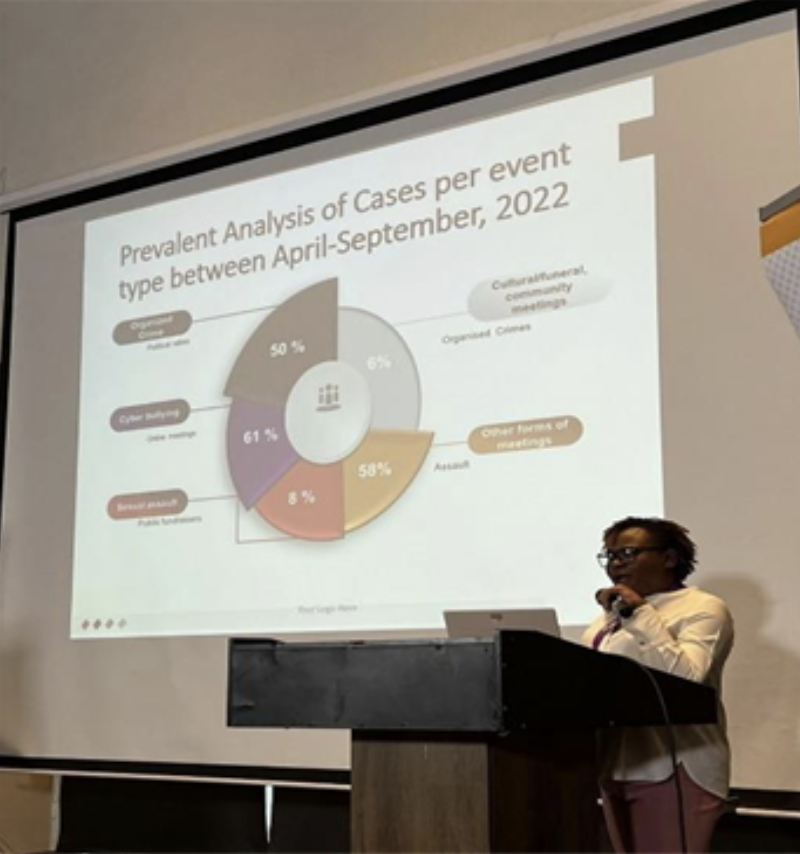 The moment we establish that the cases should go to court, we train them to represent themselves before these courts. We have a programme to promote self-representation. In Kenya, our judicial system and the courts have gone virtual, so we attend and argue virtually. The client comes to the office, and we give them drafting support and prepare them for what to expect and what the results could be. We also mentor them to be clear on the claim of their rights. FIDA-Kenya has also supported the installation of Virtual Justice Centres.
The moment we establish that the cases should go to court, we train them to represent themselves before these courts. We have a programme to promote self-representation. In Kenya, our judicial system and the courts have gone virtual, so we attend and argue virtually. The client comes to the office, and we give them drafting support and prepare them for what to expect and what the results could be. We also mentor them to be clear on the claim of their rights. FIDA-Kenya has also supported the installation of Virtual Justice Centres.
We have legal representatives, and we also work with pro-bono lawyers. FIDA is a member of many alliances, e.g. Women Lawyers, Women Law Students, and Women Judges. That is why we are able to do strategic litigation. Whenever there are cases of violations of women's rights, or there are issues around policies or laws that violate women’s rights, we step in and appeal to the courts with interested parties through Amicus Curiae. We are aware that we use the law as a tool to make changes.
We try to mobilise community-based organisations, human rights organisations and our main goal is to be able to offer support on advocacy, as well as to support the work that they do. These paralegal communities help us monitor cases, and then they refer them to us for legal representation. The core idea here is that they should be able to support the clients in accessing justice at the community level.
That is why we work very closely with partners; we encourage everyone to come on board as we champion the cause of justice. We work with both state and non-state actors. The most important partnership we have through the advocacy that we do is with the National Chancellor of Administration of Justice. We were even given a platform to lead the Sexual and Gender-based Violence Committee of this institution. We have been tasked with reviewing policies on sexual and gender-based violence in Kenya. We have set up special courts that address this issue, and we support the operationalisation of these courts.
Finally, as I mentioned, we also work in law and policy reforms through advocacy. We have the privilege to work closely with lawmakers at the national and federal levels. Right now, we are passionate about recruiting women leaders, so we have a mentorship programme for these leaders. We believe in promoting gender equality, and in order to achieve that, we have to involve women in decision-making processes. We work with women taking into account the various intersections, such as women and girls who are in conflict with the law, as well as justice affected women. For this, we work with the prisons as well.
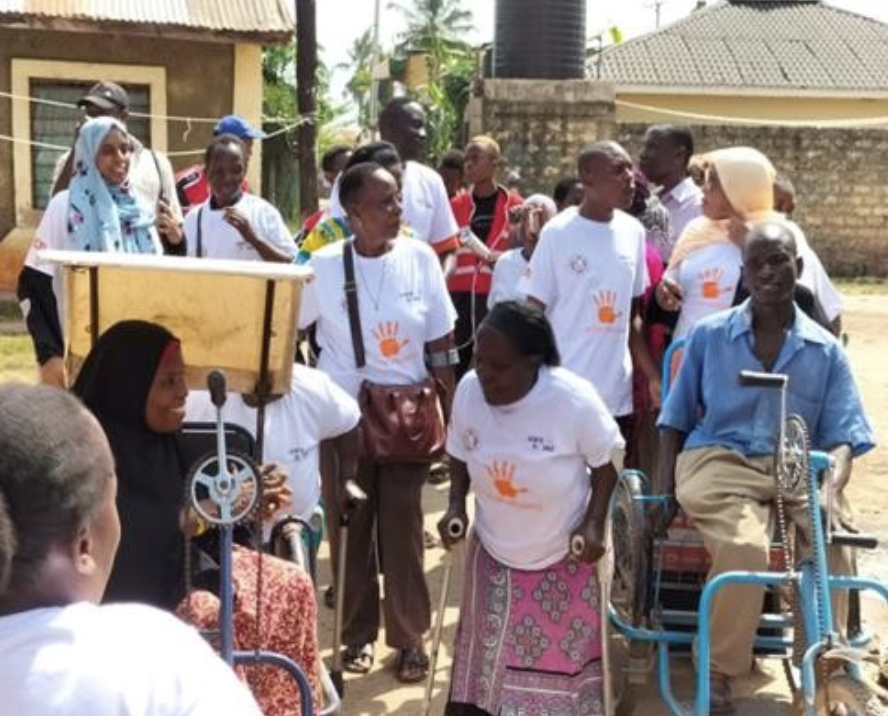 Vivian: That’s wonderful, you have a broad spectrum of work. However, I have a question regarding access to justice. What are the main challenges your organization and the groups you work with face with regard to effective access to justice?
Vivian: That’s wonderful, you have a broad spectrum of work. However, I have a question regarding access to justice. What are the main challenges your organization and the groups you work with face with regard to effective access to justice?
J: I would say that the main challenge is the knowledge gap. Communities are not aware about their rights, or the existing laws and policies. Take, for example, female genital mutilation (FGM). There are communities that still continue with this practice despite the fact that Kenya has a very prohibitive law with regard to FGM. Anyone found in possession of any tool that can be used to commit this mutilation can be arrested. This knowledge gap around what the law and the constitution say, it’s very problematic. Hence, at FIDA we have a programme about raising awareness among both duty bearers and rights holders. The more we empower them on their rights, the more they are able to claim them. Also, duty bearers are better prepared to support them in the process.
I would say that we still have cultural impediments. There are some communities that want to stick to ‘’traditions’’ or cultural practices, but some of their practices are now prohibited by the constitution, such as child marriage. These are some cultural impediments faced by women when they try to access justice.
I would also like to mention the issue around resources. When you speak to the judicial system, they will tell you that they have very limited allocations from the government, so their function is not at its best. That’s when we step in for collaboration.
Vivian: About the mentorship programmes that you have at the community level, have they been able to influence the justice system or public policies? Can you give an example of a specific policy that FIDA-Kenya was able to influence?
J: Well, our constitution has a provision that not more than two-thirds of men or women can occupy elected positions. So, if the constitution requires women leaders to be elected, it’s because their inputs are quite useful. As FIDA, we have seen that over the years, the women that we have mentored have won visibility. When they go to those spaces where they are able to influence and make decisions, they act like real leaders, and the court appreciates their leadership on gender equality and gender responsiveness. As these aspects are appreciated, they are able to influence policies and law reforms more.
I will give you an example regarding the sexual offences act. In Kenya, sexual offences were categorized along with other regular offences. Thanks to all the work of advocacy that these women have done, one of the judges of the supreme court pushed this act and mentioned that there are so many cases of sexual violence in Kenya that we must focus on how to make the offences more punitive in order to reduce the number of perpetrators.
Vivian: Wow, the visibility of these women seems very powerful. I was wondering how you reach these women in order to be included in your mentorship programmes?
J: I would say that it is mainly due to the ‘’brand’’ that we have created over the years, while we have been consistently advocating for protection and promotion of women’s rights. Also, we are a member-based organisation, so our members are women lawyers or law students, scholars, judges, researchers, any woman in their legal profession. In the communities, we have paralegal centres. We identify the women there, start training them on their rights, on gender equality, on the laws and the constitution, in human rights standards, among others. We promote women’s rights as human rights.
Also, we have a very good relationship with local media who usually invite us to talk about certain topics, for example, femicides in Kenya. In that way, people get to know what we are doing, what we advocate for, and the events we normally develop.
Vivian: And when you get to share the services that you provide or the programs that you develop, is it for all women, whether Kenyans or migrants?
J: I would say that most of our clients are local, but we also work with migrants who are living inside the country. We also work with citizens living abroad. We, as FIDA, represent all women. Recently, I was speaking with a migrant living in Kenya. She needed our mediation services and she benefited from that. I told her that she is now our ambassador, as a community leader who can support the non-citizens living in Kenya. 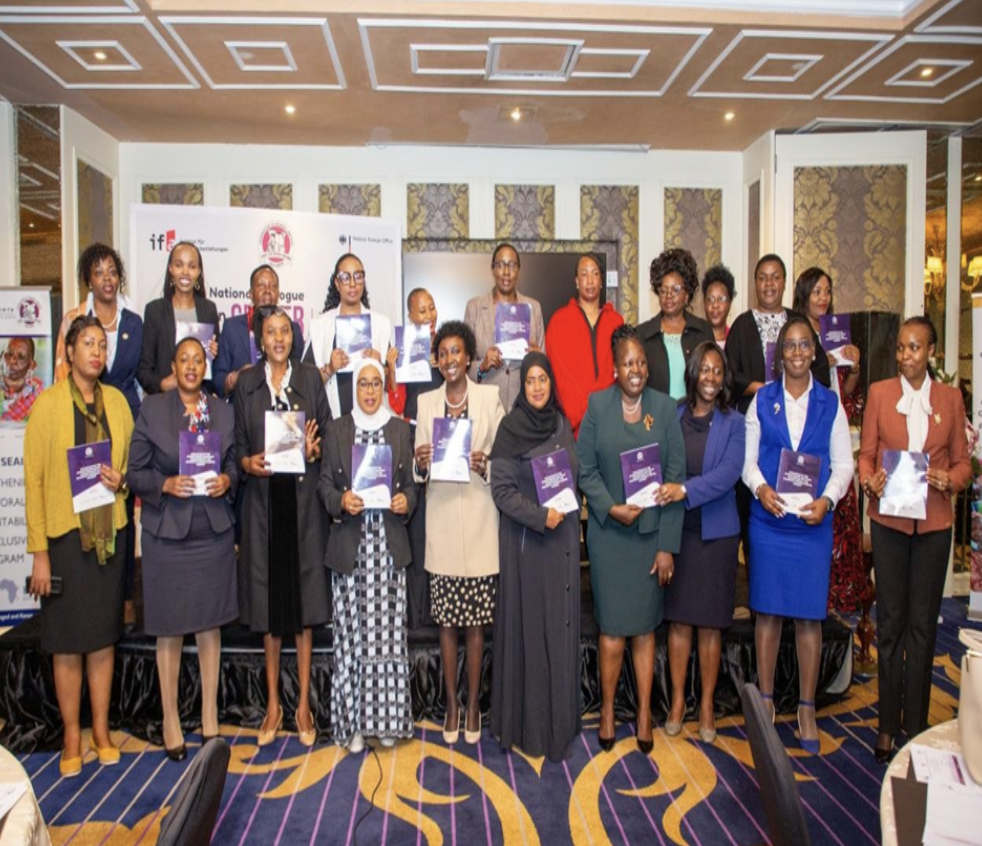
Vivian: My last question is about the membership of FIDA-Kenya at GAATW. What does it mean to be part of an alliance like GAATW?
J: We represent women and girls and we believe in making justice accessible to them and to have protective laws for women and girls. We do so within our borders and abroad. So, I would say that for us, as FIDA-Kenya, it is a great opportunity to be able to seek alliances with experts in the international sphere. When it comes to issues around trafficking in women and girls, which is closely related to human rights and the rights of this group, it is very useful for us to foster a partnership like this and work around strategic litigation and research.
Vivian: Thank you for these thoughts, Janet! Is there anything you would like to add about the work you do or the work you’re willing to do in the future?
J: I would like to mention that we are also deepening our work on legal education and legal awareness because Kenya actually has an anti-trafficking act that communities are not really aware of. In that sense, we try to sensitize duty bearers and police officers in order to be able to identify cases of human trafficking.
Also, we have received cases for legal representation of victims of human trafficking, so we are fostering partnerships or collaborations for initiatives in strategic litigation in Africa.
Vivian: Good, thanks for sharing this last initiative with us! And thank you for letting us know more about the work FIDA-Kenya has done so far.

